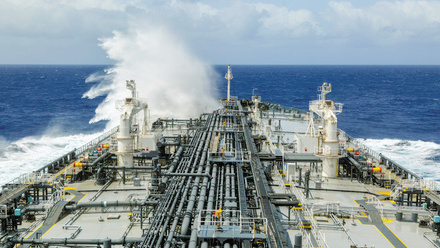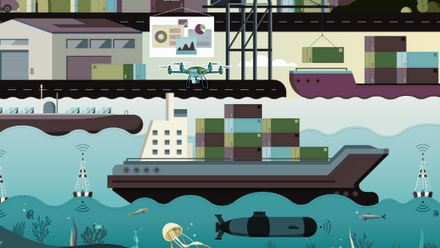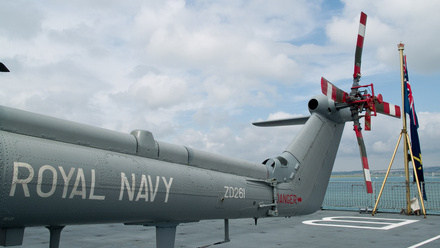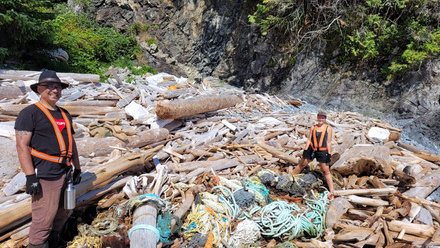FIMarEST champions ethical AI for marine mammal science
IMarEST’s busy Special Interest Group is helping professionals stay up to date on the latest technology innovations.
From predictive maintenance to route optimisation, artificial intelligence (AI) can make shipping smarter and safer. The transformational technology is also making an impact when it comes to marine science, with members of IMarEST’s Marine Mammal Special Interest Group (MMSIG), including Emily Charry Tissier and Dr Justine Boulent from the award-winning start-up Whale Seeker, already pioneering the use of AI in marine ecological monitoring.
MMSIG co-chair Niru Dorrian, IMarEST Fellow and IMarEST ambassador to the UN Ocean Decade, is keen that members are up to date on the latest developments and ethical considerations in this fast-emerging area. The SIG recently hosted the Harnessing Responsible AI for Marine Mammal Conservation webinar, which explored how AI is being rapidly integrated into marine mammal monitoring.
“The session covered important considerations for practitioners, regulators, and policymakers, highlighting concerns around scientific validation, transparency, and ethical oversight in AI tools,” says Dorrian. “It offered a structured guide for evaluating AI solutions and discussed risks associated with unverified AI and the lack of current governance frameworks.
“We also have a journal publication currently in peer review, focusing on ethical AI use in marine mammal science,” Dorrian adds.
In addition, the MMSIG is developing what Dorrian describes as “a practitioner pocket guide for industry”.
A guide for AI use
“The aim is to provide accessible, evidence-based guidance for those looking to adopt or assess AI tools responsibly,” he explains.
MMSIG is a busy operation and a good example of how IMarEST’s SIGs add real value to marine professionals. Over the first half of this year, there have been a range of professional development initiatives, such as the January webinar, ‘Careers in Marine Mammal Science and Industry: Building Skills for the Blue Economy’, and then in May, the publication of an article by Ashleigh Kitchiner called Training the next generation of marine mammal observers.
This summer will also see the publication of the SIG’s major report, ‘Marine Mammal Monitoring: Methods, Technologies, and Opportunities for Innovation’, developed as part of the joint project between IMarEST and the Department for Environment, Food and Rural Affairs (Defra), which was announced in January.
This is another signal of the important contribution IMarEST and its MMSIG members make to enhance marine mammal monitoring. And, as Dorrian points out, there’s never been a better time for members to get involved.
“We remain a very active SIG and are always keen to hear from members interested in contributing to webinars, publications, consultations, or future projects,” he enthuses.
“Several of our recent activities have been officially endorsed as UN Ocean Decade Actions, further demonstrating the relevance and impact of our work,” concludes Dorrian.
Want to get involved? Discover more about MMSIG.
Tell us what you think about this article by joining the discussion on IMarEST Connect.
Image: dolphins swim under the waves. Credit: Shutterstock.






